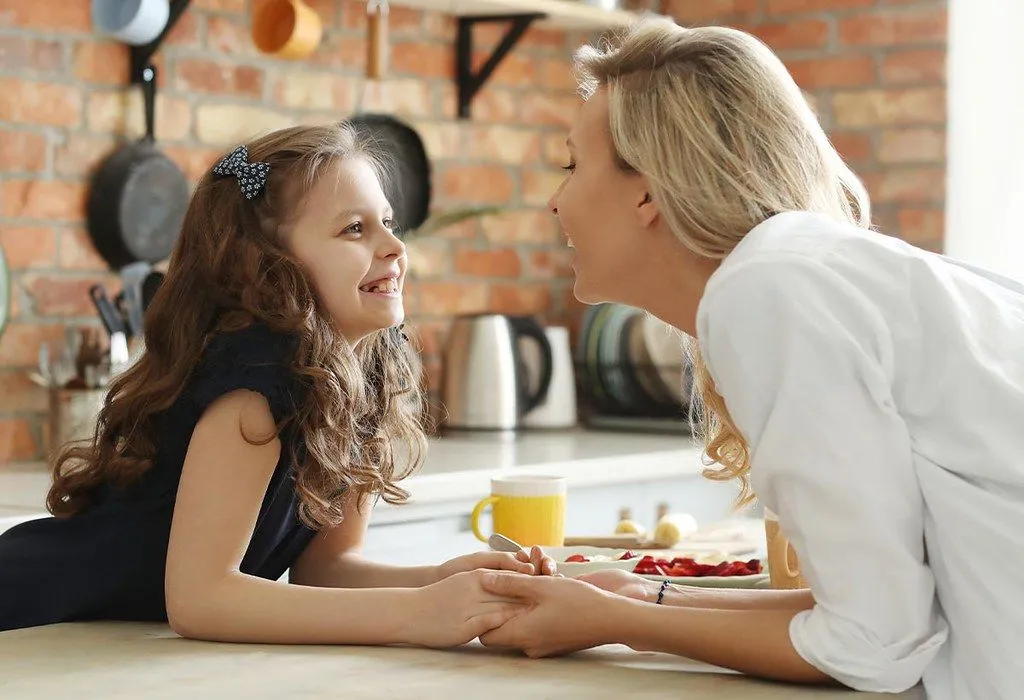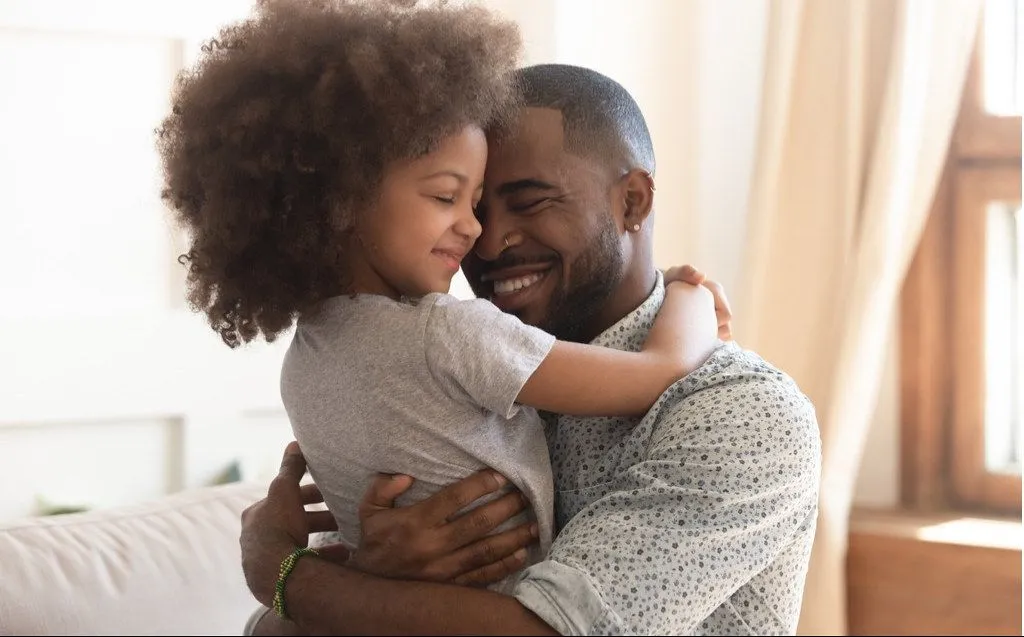FOR ALL AGES
"How was your day, honey?"
"OK. Can I play now?" If that brief exchange sounds familiar, you're not alone.
Parents everywhere can struggle to learn about their child's day, particularly when they come home from a long day at school. Younger children may lack the right communication skills, while teenagers often run to their own agendas. But with a little thought, we can find different ways to say "how was your day?" that may get them to open up a little more.
Here, we've come up with six questions to try instead of how was your day that should work for most people.
Find out the answers to more questions, such as [how should often grandparents see their grandchildren?] and [how to get tie dye off hands] here.

Think about how you reply when someone asks you "how was your day?". More often than not, you probably respond with a "fine" or "not bad" or even a "can't complain". It's similar to questions like "How are you?", "How's things?" or "Wassup?". The question is usually asked as part of polite small talk, rather than a genuine appeal to learn everything that happened to you today.
It's the same with kids. You've probably welcomed them home with the same question after every school or kindergarten day for years. Most children will give an "OK" or "fine" or just a grunt, before launching into whatever topic they want to talk about.
There may be a deeper reason why generic questions don't get an enthusiastic response in smaller children. Their brains haven't yet learned to deal with broad questions. Any meaningful answer to "How was your day?" requires some serious thought and conversation skills. How do you reflect on the hundreds of things that happen in a day, pick out the ones that your parents will be most interested in, then sum it all up for them? It's too much for a young child to parse. Generic questions are not a good way to encourage a child to talk.
As caring parents, you'll pick up on the general mood of your child, and you should be able to tell if something is playing on their mind. That's a good start, but if you're going to help them work through any problems, you'll need to find out the specifics.
There's a second reason we ask people about their day, though, and that's to show them we care. Everybody, and kids in particular, needs to know that they are noticed and valued by the people at home and around them. Any kind of "how are you?" goes some way towards that. But you can help build stronger bonds by finding another way to say "how was your day?".

As previously discussed, you should avoid generic, open-ended questions like "tell me about your day?" or "how was your day?". Instead, we need to find more specific things to ask, or use a question more likely to start a conversation and uncover any areas they may need help with. Here are six alternatives to "how was your day?".
Did anything make you smile/laugh today? A good positive question to ask, which should get them talking about the better parts of their day. You can then springboard to ask if anything made them feel sad, or for which they need your help.
Who did you sit with at lunch? This is a question with only one or two possible answers, so should be easy for your child to answer. You'll learn more about the people he or she hangs around with, which could lead to conversations about friendship.
What's the best question of the day that teacher asked? This gets them thinking about one specific voice, that of their teacher. They should be able to recall at least one of the many questions raised in class, which will lead to a conversation about their school day and work. If "best" doesn't work, you may find that something else, like "toughest", "funniest" or "easiest" works better. You can then bounce off into new angles to find out more about their school life that day.
What did you wish you did more of today? This is another great question for getting kids of all ages to tell you about the real highlights of their day. You can, of course, flip it to ask for what they wish they'd done less of.
What songs did you listen to today? Bringing in other senses is often a good way to get a response. Music can be particularly important to children and teens, and may be a useful way to help them come out of their shell and talk. You can again adapt the question to "what book did you read?", or "what game did you play?", depending on the person and their passions.
How is your day going to go? Instead of asking how was your day, you could try starting with something a bit more forward-looking. It's a bit easier to respond to than a question about the day just gone, as the child doesn't have a great number of possible subjects to talk about. They will instead mention the things they're either really looking forward to (maybe a game of football) or the things they're dreading (such as a particular lesson). Hopefully, they will respond enthusiastically, saying "we're gonna have a good day!" Either way, you can use it to start a good conversation.
If you found this article helpful, then why not find out [if your child can be a child model], or take a look at our Elf on the Shelf names too?
Read The Disclaimer
At Kidadl we pride ourselves on offering families original ideas to make the most of time spent together at home or out and about, wherever you are in the world. We strive to recommend the very best things that are suggested by our community and are things we would do ourselves - our aim is to be the trusted friend to parents.
We try our very best, but cannot guarantee perfection. We will always aim to give you accurate information at the date of publication - however, information does change, so it’s important you do your own research, double-check and make the decision that is right for your family.
Kidadl provides inspiration to entertain and educate your children. We recognise that not all activities and ideas are appropriate and suitable for all children and families or in all circumstances. Our recommended activities are based on age but these are a guide. We recommend that these ideas are used as inspiration, that ideas are undertaken with appropriate adult supervision, and that each adult uses their own discretion and knowledge of their children to consider the safety and suitability.
Kidadl cannot accept liability for the execution of these ideas, and parental supervision is advised at all times, as safety is paramount. Anyone using the information provided by Kidadl does so at their own risk and we can not accept liability if things go wrong.
Kidadl is independent and to make our service free to you the reader we are supported by advertising.
We hope you love our recommendations for products and services! What we suggest is selected independently by the Kidadl team. If you purchase using the buy now button we may earn a small commission. This does not influence our choices. Please note: prices are correct and items are available at the time the article was published.
Kidadl has a number of affiliate partners that we work with including Amazon. Please note that Kidadl is a participant in the Amazon Services LLC Associates Program, an affiliate advertising program designed to provide a means for sites to earn advertising fees by advertising and linking to amazon.
We also link to other websites, but are not responsible for their content.
Was this article helpful?



We’ll send you tons of inspiration to help you find a hidden gem in your local area or plan a big day out.



Check your inbox for your latest news from us. You have subscribed to:
Remember that you can always manage your preferences or unsubscribe through the link at the foot of each newsletter.